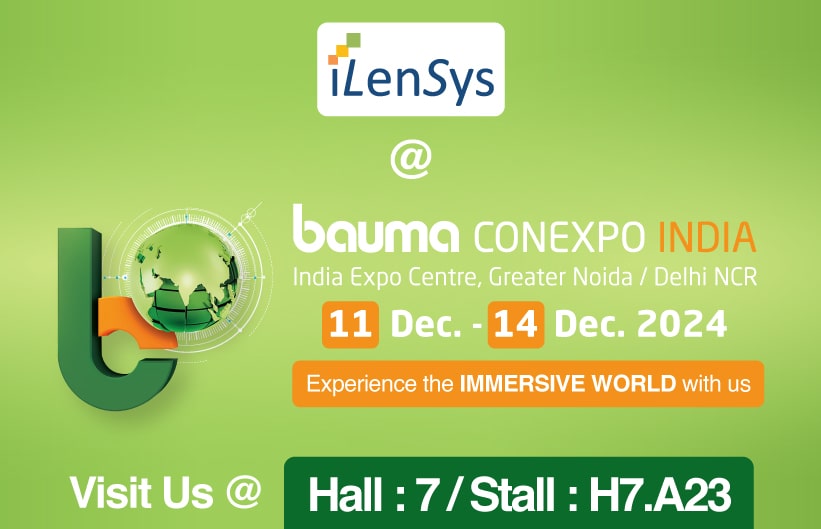Executive Summary
Per- and poly-fluoroalkyl substances (PFAS) are a group of synthetic chemicals known for their strong carbon-fluorine bonds, making them highly resistant to degradation. This resilience has earned them the nickname "forever chemicals." PFAS are pervasive in the environment and everyday products, leading to widespread exposure and significant health concerns. This whitepaper explores the sources, exposure pathways, health impacts, and regulatory challenges associated with PFAS, along with solutions to manage PFAS in the supply chain.
Introduction
PFAS are a collective of complex molecules with a strong carbon-fluorine bond that resists natural degradation. As a result, PFAS can persist in the environment, contaminating water, soil, and air. These chemicals are present in a variety of everyday products, including cosmetics, personal care items, clothing, cookware, and food packaging, making them ubiquitous in our daily lives.
Sources of PFAS Exposure
People are exposed to PFAS through various means, including:
- Household Products: Cosmetics, personal care items, non-stick cookware, and clothing.
- Food and Water: Contaminated drinking water, packaged foods, and seafood.
- Indoor Air and Dust: PFAS particles can be inhaled from the air and dust within homes.
- Industrial and Manufacturing Sites: Airports, chemical plants, and areas where PFAS-based fire-suppressants are used.
Environmental Contamination
PFAS can contaminate the environment through:
- Wastewater Treatment: PFAS remain in water even after treatment.
- Landfills: PFAS leach from disposed products into groundwater.
- Agriculture: Use of recycled water or biosolids in agriculture can introduce PFAS to crops and soil.
- Industrial Sites: PFAS from industrial processes and products contaminate through spills and runoff.
Industry-Specific Uses of PFAS
- Electrical and Electronics: Used in manufacturing components like cables, circuit boards, and lithium batteries for their non-corrosive and heat-resistant properties.
- Medical Equipment and Solutions: Used in coatings for medical devices and consumables, aiding in therapies and diagnostic techniques.
- Clothing and Household Products: Applied for their grease- and stain-resistant properties in items like carpets, jackets, and non-stick cookware.
- Cosmetics: Found in lotions, shampoos, sunscreens, and dental floss, enhancing product performance and durability.
Health Effects of PFAS
Research indicates numerous health issues linked to PFAS exposure:
- Cardiovascular and Hepatic Issues: High cholesterol and liver damage.
- Cancer: Several PFAS are considered carcinogenic.
- Immunological Effects: Reduced antibody response to vaccines.
- Developmental Defects: Pregnancy complications and developmental disorders.
Studies, such as the National Health and Nutrition Examination Survey, show that over 90% of the US population has detectable levels of PFAS in their blood.
PFAS as a Substance of Very High Concern (SVHC)
The strong carbon-fluorine bond in PFAS makes them highly persistent in the environment. PFAS are listed as SVHC under the REACH regulation, posing challenges for businesses to keep up with regulatory updates and ensure compliance across their supply chains.
Regulatory Actions
In April 2024, the Environmental Protection Agency (EPA) established enforceable limits for six PFAS, aiming to protect millions of people from exposure. These regulations are crucial for mitigating the health risks associated with PFAS.
Identifying PFAS in Your Supply Chain
Managing PFAS in the supply chain involves:
- Surveying: Assessing the presence of PFAS in products and processes.
- Risk Identification: Identifying components at risk of PFAS contamination.
- Supplier Collaboration: Working with suppliers to ensure compliance and safe handling of PFAS.
- Reporting: Maintaining accurate documentation and reporting on PFAS usage and mitigation efforts.
Mitigation Strategies
- Best Practices: Implementing best practices for reducing PFAS exposure and contamination.
- Technological Innovations: Utilizing emerging technologies and methods for detecting and removing PFAS from the environment.
How iLenSys Can Help?
At iLenSys, we offer a comprehensive approach to managing evolving PFAS regulations through our advanced software solution and the expertise of our strong engineering and compliance teams. Our integrated platform and expert services are designed to help businesses effectively:
- Survey Their Supply Chain: Conduct thorough assessments using our software to identify the presence of PFAS in products and processes.
- Identify Risk Components: Utilize our software's advanced analytics and our engineering team's expertise to pinpoint critical areas within the supply chain that are at risk of PFAS contamination.
- Collaborate with Suppliers: Leverage our platform and engineering team's knowledge to work closely with suppliers, ensuring they meet regulatory standards and adopt safer alternatives.
- Ensure Seamless Compliance: Combine our software's continuous monitoring capabilities with our compliance team's expert services to maintain up-to-date adherence to all relevant regulations.
By integrating our iLenSys Compliance Manager (iCM) solution with the specialized knowledge of our engineering and compliance teams, we simplify the complex process of PFAS management. This ensures your business stays ahead of regulatory requirements while safeguarding environmental and consumer health.
Build a Compliant and Resilient Supply Chain through iCM. Contact us here.
Conclusion
PFAS are pervasive and persistent chemicals that pose significant environmental and health risks. Understanding their sources, exposure pathways, and health impacts is essential for managing and mitigating these risks. Regulatory actions are crucial, and solutions like iLenSys’s Compliance Manager can help businesses navigate these challenges and ensure a compliant and resilient supply chain.
Please Enter your Business Email to download the WhitePapers
ilensys needs the contact information you provide to us to contact you about our products and services. You may unsubscribe from these communications at any time. For information on how to unsubscribe, as well as our privacy practices and commitment to protecting your privacy, please review our Privacy Policy.
Talk to ours Product Environmental Compliance Experts.
By submitting this form, I agree to receive emails about iLenSys's products and services as per the Terms of Use. I can unsubscribe at any time via the 'unsubscribe' link in iLenSys emails or by emailing contact@ilensys.com. I also agree to the Privacy Policy.
Sign up for the latest Blogs, Case studies, Whitepapers, Webinars and Videos.
- Blogs
- Case Studies
- News and Updates
- Videos
- Webinars
- White Papers
-
- Product Environmental Compliance
- Obsolescence Management
- Regulatory & Product Safety
-
-
-
-
-
-
- New Product Development
- Mechanical Design
- FEA Validation
- Benchmarking and Value Engineering
- 3D Scanning and Reverse Engineering
- 3D Printing
-
- Embedded Systems
-
- Industrial Automation
-
- Quality Assurance and Regulatory Affairs
-
- Extended Reality
- 3D Animation & Video Production
- WebGL Development
- Graphics and UI/UX Reality
-
- Technical Documentation
-
- Early Engineering Talent (EET)
-
-
-
- Lab Equipment
- Medical Devices and Equipment
-
- Scientific Instruments
-
- Life Sciences
-
- Static and Mobile Equipment
-
- Material Handling Equipment
-




